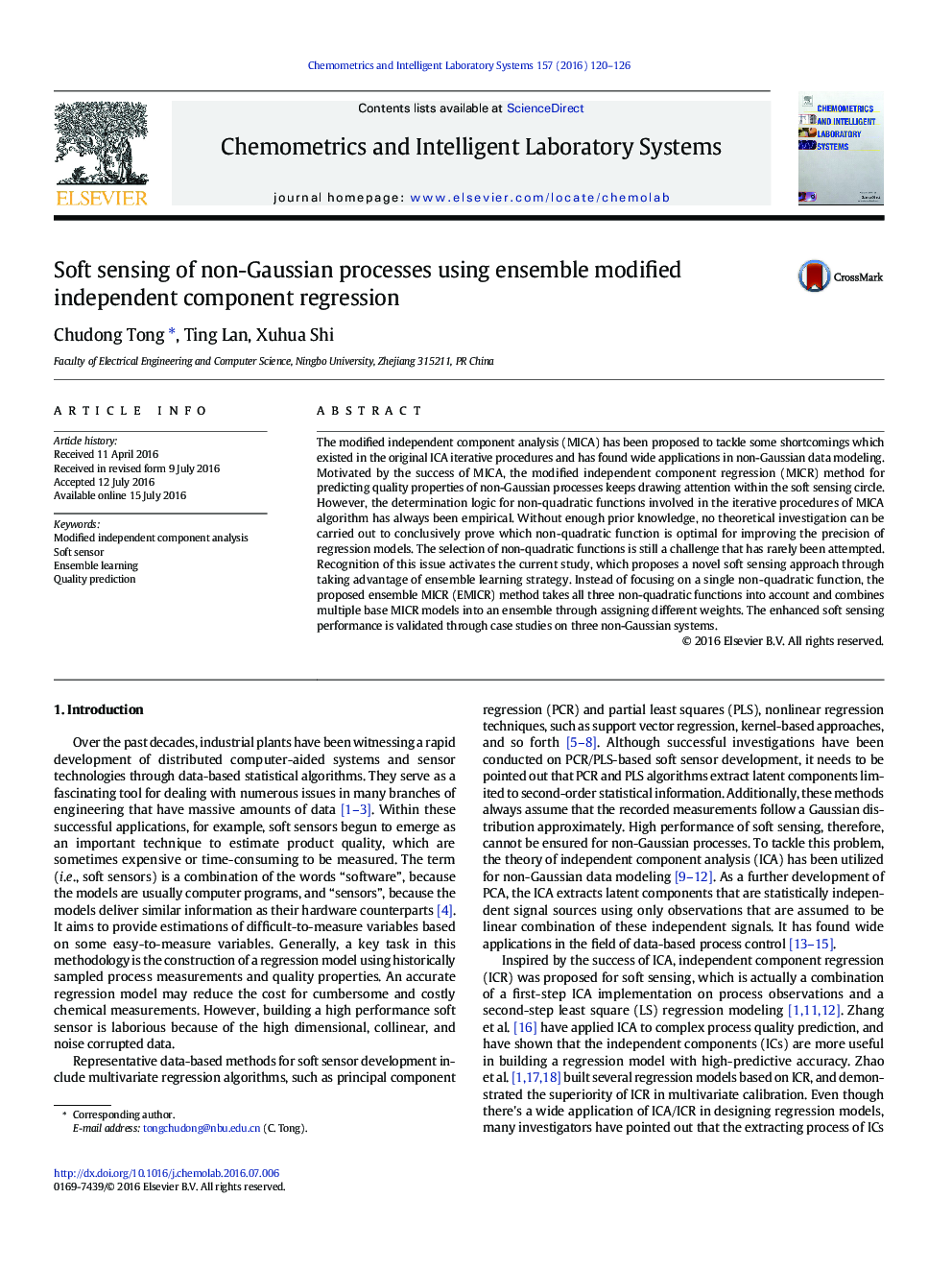| Article ID | Journal | Published Year | Pages | File Type |
|---|---|---|---|---|
| 1180136 | Chemometrics and Intelligent Laboratory Systems | 2016 | 7 Pages |
•A novel MICR-based soft sensing method is proposed for non-Gaussian processes.•Multiple MICR base predicting results are combined into an ensemble one.•Robust performance is ensured regardless of the selection of non-quadratic functions.•Case studies demonstrate the priority and the promise of the proposed EMICR model.
The modified independent component analysis (MICA) has been proposed to tackle some shortcomings which existed in the original ICA iterative procedures and has found wide applications in non-Gaussian data modeling. Motivated by the success of MICA, the modified independent component regression (MICR) method for predicting quality properties of non-Gaussian processes keeps drawing attention within the soft sensing circle. However, the determination logic for non-quadratic functions involved in the iterative procedures of MICA algorithm has always been empirical. Without enough prior knowledge, no theoretical investigation can be carried out to conclusively prove which non-quadratic function is optimal for improving the precision of regression models. The selection of non-quadratic functions is still a challenge that has rarely been attempted. Recognition of this issue activates the current study, which proposes a novel soft sensing approach through taking advantage of ensemble learning strategy. Instead of focusing on a single non-quadratic function, the proposed ensemble MICR (EMICR) method takes all three non-quadratic functions into account and combines multiple base MICR models into an ensemble through assigning different weights. The enhanced soft sensing performance is validated through case studies on three non-Gaussian systems.
